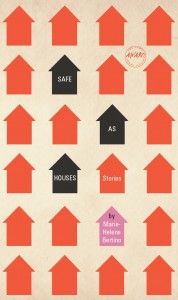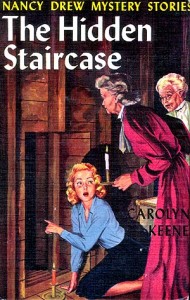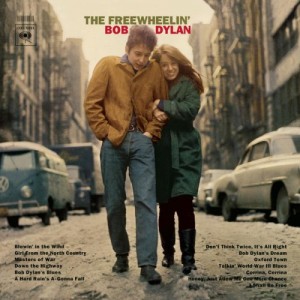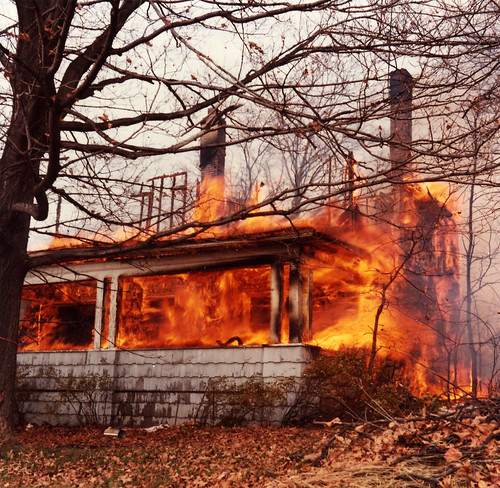 When I arrive at Marie-Helene Bertino’s Brooklyn apartment to interview her about her new book Safe as Houses, she shows me the following: pizza in the oven that we will eat; her dog, Fantastic Mr. Fox, who really does look like a fox; and a mix tape she made as a teenager to commemorate the worst Memorial Day weekend ever, when she wasn’t allowed to go to the shore with some friends. The cover of the tape is all black, and the tracklisting features Metallica, though not exclusively.
When I arrive at Marie-Helene Bertino’s Brooklyn apartment to interview her about her new book Safe as Houses, she shows me the following: pizza in the oven that we will eat; her dog, Fantastic Mr. Fox, who really does look like a fox; and a mix tape she made as a teenager to commemorate the worst Memorial Day weekend ever, when she wasn’t allowed to go to the shore with some friends. The cover of the tape is all black, and the tracklisting features Metallica, though not exclusively.
I am in my tenth year of knowing Marie-Helene Bertino, and I’m still able to learn things about her: that she cooks a mean pizza, that she is a great friend to dogs, that she was Metallica-level bummed about missing a weekend at the shore. Her writing is like that, too: the eight stories in her debut collection, Safe as Houses (U of Iowa Press), have a voice, clear and true, but even within the book, even after you have noticed what a vivid and hilarious and heartbreaking writer she is, there are surprises. Houses burn down, or stay intact with all of their most important contents destroyed. One woman gets a job at a Catholic school after her relationship ends; another woman has dinner with the idea of her ex. Bob Dylan comes over for Thanksgiving.
I had the pleasure of reading Marie’s work in a writing group for many years and then working with her at One Story, where she was an Associate Editor, and over this time I saw some of these pieces grow and change. It was like watching a sharp, hilarious little kid grow up into a sharp, hilarious wise person who still remembers where in the backyard the treasure is buried.
We ate pizza and talked about writing.
Interview
 Jesse Hassenger: I thought it would be fun to go through the book story by story, sort of like liner notes, because I like to picture writers deciding how to order their stories, like they’re preparing a tracklist. So my first question is: did you do that? And also: did you specifically pretend you were Bob Dylan figuring out the song order for Blood on the Tracks?
Jesse Hassenger: I thought it would be fun to go through the book story by story, sort of like liner notes, because I like to picture writers deciding how to order their stories, like they’re preparing a tracklist. So my first question is: did you do that? And also: did you specifically pretend you were Bob Dylan figuring out the song order for Blood on the Tracks?
Marie-Helene Bertino: I let my mom do it.
Really?
No. I did actually sit down and think like I was making a mix tape. The most important mix tape of my life. And I thought to myself, is it wrong that I’m doing it this way? Should I be thinking some more important thoughts about this? I thought of asking other writers how they did it, but at the end I was just like, no, fuck it, I’m just going to pretend it’s a mix tape. But going from one story to the other, I think my biggest goal was to place them in a way that it didn’t sound like the same narrator throughout. And because so many of them are first person, that wasn’t able to be done.
I feel like in the second one, where the narrator says she’s an alien, that’s a pretty good indication.
I guess so. Then I had the longer ones later, because I thought maybe the book would train you to have an attention span that would allow for a longer story. And then I did first line, last line: I matched up what would be the last sound in your head with the first line of the next one. Because that’s what you do with a mix tape. Then I decided what I wanted the very last line of the book to be. I thought [last line redacted for spoilers] was a good way to end the book.
I agree.
It’s positive, and I’m okay with that.
You left out your final, ninth story that ends with “fuck all of you!”
“We’re all gonna die, hopefully soon.”
And then it comes with instructions to play a Metallica song.
“Press play on the Memorial Day mix tape.”
So with mix tapes in mind, I’m going to go through this like it’s an album, track by track.
“Free Ham”
I know it’s sort of reductive to say, oh, did this happen to you? Or even, fact: such and such happened to you, and now it’s in this story. That said, I do know that your mom’s house caught fire. I have no idea if you won a free ham and I don’t need to know that. But I would like to know how long it took for something traumatic like that to become something that got you thinking, okay, maybe I can deal with this by writing about it — if that was an immediate thing, or something that took longer.
Actually, it was an immediate thing. Because the very first scene, where the firefighter speaks to the family, was verbatim what happened to us as we were standing on the lawn. Except it wasn’t just me and my mom; there were a bunch of us. And I felt like the firefighters knew exactly what to do, and we didn’t. It was the day before a good friend of mine was getting married, and I was in the wedding. So my mom’s house burned down, and the next day I was in this wedding. I remember thinking at the reception: I cannot believe how surreal and weird those questions the firefighters asked us were, and that was only a day later. I was very much in shock, but I knew that scene was going to go somewhere. Plus in the days following, my family was ultra-present and we were all getting through this together. Because we all have the same dark, twisted, weird sense of humor, we all thought that it was so funny, and kept repeating [what they’d said] to each other, and making jokes about the fact that the cat doorstop made it and nothing else did — and the fact that we went to a diner after spending the whole day trying to clean the smell of smoke out of things, and they were, like: “smoking or non?” And we all started laughing hysterically. We were all kind of telling ourselves the story as it was happening.
“Sometimes You Break Their Hearts, Sometimes They Break Yours”
I wrote that story because I actually am an alien. It’s actually memoir.
This story has a really great tone where it sounds like someone is speaking to you, but not in that “listen up, have I got a story for you,” you know, “gather round, children”…
I’m so glad I cut that, because that was actually the first line: “Gather round children, have I got a story for you!”
Good cut! This story sort of feels like something that started as a paragraph and just kept going –- it really confidently takes you through it. So reading it, I was wondering if that’s how it actually worked, or if it was more mapped out.
I think of two things when you ask me that. I used to keep notes on human beings – very, very basic things that a newcomer to the planet would think of, that I thought were crazy, and the first thing I wrote down was that water comes out of people’s eyes when they are sad. When you think of that on a basic level, it’s so weird. So I had some notes like that, and I just remember having so much fun writing it. I didn’t think it would be a story, so I gave myself free rein to be as silly as I wanted to. Then, when I realized how sad she was to be an alien and to be away from everyone, then I was like, I think this might actually work as a story. I wrote it very quickly, and the Indiana Review took it immediately. So it was one of those blessed moments where it actually came out whole, I think because in many ways it is the childlike view I’ve always just kind of had of the world. Many things boggle my mind. I am easily amazed.
Easily boggled.
I am easily boggled and constantly amazed. I have a million different versions of Alice in Wonderland, and Alice stays constantly amazed. No matter what happens, she doesn’t have the memory of what just happened. She’s like, “What?! A Mad Hatter?! In this weird world?!” She never fucking learns! I was thinking of that, too, when I wrote this, because I love that story. If this doesn’t sound too pretentious or weird, I actually wanted to make myself laugh. I left in certain lines, like “he’s dead now, and by dead I mean dating a stripper” –- I laughed so hard when I thought of that line, and I don’t mean to toot my own horn at all. I really wanted to write a piece that made me laugh.
Yeah, I think that’s a great place to start.
And I knew it by heart. Remember when I read it at One Story? It was you who came up to me and you were like, you didn’t look down for the first couple of pages! It was because I used to recite that story out loud to myself; it was kind of like a funny little song.
“The Idea of Marcel”
One small thing I love about the story is the way it uses dialogue tags. There’s a really good use of “added,” and a great use of “cried,” which is actually maybe my favorite dialogue tag ever.
Really?!
I mean, you know I’ve complained about dialogue tags.
Yeah!
But there’s a certain way to use them that’s very funny, and there’s something funny to me about “cried” — it’s like “exclaimed,” except funny. “Exclaimed” is horrible and “cried” is great.
Do you use “cried” a lot?
I try not to. But I was reading The Great Gatsby again, and they use “cried” a fair amount in that. And it struck me funny, and re-reading this piece, it struck me as funny again. So I actually really lamely wrote down, okay, for the thing I’m writing now, I want someone to cry something out, because it’s really funny! In your story, “I adore getting the Led out!” gets cried, and that is a wonderful thing to cry. That’s not really a question. I just loved that you zeroed in on what’s funny about “cried.”
 You know why? Because people are always crying things in Nancy Drew. They cry out all the time. George and Beth, her little chums, always cry. “My hair isn’t curly!” they cried. They were always talking about their hair. So I thought you could use all of those things all of the time, and then I became so averse to using any of them. But you’re right, “cried” is funny.
You know why? Because people are always crying things in Nancy Drew. They cry out all the time. George and Beth, her little chums, always cry. “My hair isn’t curly!” they cried. They were always talking about their hair. So I thought you could use all of those things all of the time, and then I became so averse to using any of them. But you’re right, “cried” is funny.
I think it’s because it sounds very serious. And using it in this story, which is funny, it makes the person sound serious in a way that is ridiculous.
“North of”
So I’ve read a few versions of this story over the years…
Yes, you have. You read it when Bob Dylan was barely there.
I was going to say, I thought there was an early version that didn’t have Bob Dylan at all.
I don’t remember there being a version where he wasn’t there. But maybe the confusion is that you couldn’t tell in the early versions whether he was a figment of [the character’s] imagination or if he was really there. There was some watery language. At Brooklyn College, in Josh Henkin‘s workshop, he was the one who said, you have to decide whether he’s really there or not. And then I thought to myself, I think he is really there. And then I thought to myself, I can’t fucking write a story where Bob Dylan is actually there, that would be crazy. Then as soon as I thought it was too crazy to do, I realized I was about to write a story where Bob Dylan comes to Thanksgiving dinner. I felt, I think I might be on the right track, or I am about to write the worst story on earth. It felt strange even for me. There’s a film over it that I’m not quite sure how I generated.
And that’s my big question: how did Bob Dylan came to be in this story?
It’s very simple: I was fired from a job on Bob Dylan’s sixtieth birthday. I drove up to the mountains, and since it was his sixtieth birthday, all of the radio stations in Philly were playing nothing but Bob Dylan. So come Monday when I had to start telling people I got fired, I felt like Bob Dylan had helped me through it. I was like, oh, I just spent the weekend with Bob Dylan and everything’s fine. So it was a metaphor that turned into a literal thing.
The related question that’s not very much about this story is: do you have a favorite Bob Dylan album, or period?
Shit, Jesse, seriously, you’re going to force me to answer that?
You could just say that you can’t pick one because they’re all so great. And I’ll say, “even Shot of Love?”
Or, “Even his Christian rock phase? Seriously, Marie?”
And the headline of this interview will be: Marie-Helene Bertino Likes 80s Bob Dylan.
“Marie-Helene Bertino, colon, idiot.” Well, I do like Bringing It All Back Home. I also like The Freewheelin’ Bob Dylan. And I think I would say those are the two I’ve consistently gone back to. And then you think, oh, and he also wrote Blonde on Blonde. Which I think is a more perfect album, but that doesn’t necessarily mean it’s my favorite. It’s so powerful that sometimes I can’t listen to it. But yeah, I think Freewheelin’ Bob Dylan would be it.

Interesting. I said that about Shot of Love…
Because that’s your favorite Bob Dylan album?
It’s not my favorite insomuch as I don’t believe I’ve listened to it, but I did just buy it. I went on a used-CD store shopping spree when I found a cache of shitty Bob Dylan albums from the 80s. So I bought Shot of Love, Down in the Groove, and maybe Empire Burlesque, another one that’s supposed to be terrible.
Empire Burlesque isn’t terrible.
Yeah, that one I have listened to, and it’s very 80s-y in its sound, but it’s not the worst. I mean, they all have moments.
Do you have The Basement Tapes?
I do not.
You should get The Basement Tapes. I love The Basement Tapes.
You mean I should get a legitimately good album rather than collecting all the crap eighties ones? I don’t have Dylan and the Dead; I’m not sure if I count that. It’s a live album, right? He has so many live albums. But I’ve heard that it’s bad.
Who told you Dylan and the Dead was bad? That has “You Gotta Serve Somebody” on it, which is so good — such a fun version of it. But if you don’t like the Dead, you’re not gonna like it.
I don’t really like the Dead, and I always heard it was bad, but if you say there are moments, I’ll just buy it like I bought Shot of Love.
There are moments.
“This is Your Will to Live”
I saw you read this once and you flew through it, with great urgency in a really cool way. It felt breathless. Was that something that came out when you were reading it, or did you hear it that way in your head when you were writing it?
It must have been a choice I made because there was a lot of dialogue in it. To me, there is a sense of urgency, but I didn’t make a conscious choice to read that story very fast. What I was more likely trying to do was read it in a way that would make it the most palatable. I think it was getting as much in as possible into the time period I had.
Is there a piece from this book that you haven’t read out loud as much as the others?
Yeah, I never read “North of.”
Really!
I think it would sound… it doesn’t have any jokes in it. I think I have fear around that.
I feel like there are funny things in that story. Some of the ways that Dylan is described –- if you like Bob Dylan, it’s a treat to hear you describe what you imagine him to be like. To me, that’s funny, but not in a joke-funny way.
Maybe I’ll try it to read it out loud and see what happens.
I’m such a sucker for “Sometimes You Break Their Hearts, Sometimes They Break Yours” because it’s fun to read, that I think I’ve gotten kind of lazy. Then for a while I was reading excerpts from my novel. I’m always scared to [read “North Of”], I don’t know why. But I’ll try it.
“It doesn’t have jokes” is such a great response to that, because at one of the One Story things, when you did a little bit before your actual reading, I was like, this is actually really good stand-up comedy style.
When I read letters from People Magazine.
Yeah!
That’s my theater background. When I decide what to read and why, it has more to do with my theater background than it does with literature, quite honestly. And I do feel that if you’re up there and you’re expecting people to listen to you, you have to put on a good show. I just have these old world theater views of how you should read your work, and for me that meant, yeah, giving a good show!
That explains why you had a man come up and read, dressed in drag, like the old Shakespearean actors…
That’s why I’ve never read out loud. Because I don’t think women should perform! I don’t think they should be allowed to perform.
You’re very old school, drama-wise.
Of course, I always perform in the original Latin.
“Great, Wondrous”
This is one of the longer pieces in the collection, and is it more recent?
Yeah. You’d never read it, right?
I think this is the only one I had never read at all, no versions of it, until it was on Five Chapters. Was there a point where you felt like this group of stories was finished? Where you felt a piece snapping into place?
No. There was a story about a guy who wakes up knowing how to speak French, and I really wanted that story to be in this collection. And had I not won the Iowa Prize, I probably would’ve kept banging my head against that story for a good long time before I gave up. It’s a good thing that I wasn’t allowed to mess with the collection anymore — but if I hadn’t won, I would’ve tried to get that one in there, because I still feel like that story belongs. So it’s like a dropped track or whatever you call it.
It’s a B-side! You can do a B-side collection.
Do you know that I thought about a collection called B-sides, of stories like that? But I’m sure someone has done that.
I would obviously read that book. Step one is become famous and you can release whatever the fuck.
Yes.
You can do B-sides, you can do a live version of this book, like an audio book in front of an audience… Marie at the Knickerbocker Arena, or whatever.
I would never do that.
But yeah, of these stories, “Great, Wondrous” was the last I’d read, so I wondered if there was something about this piece that made it go with the others, rather than the next book or whatever.
I really wanted to write a story about a group of friends who had magic powers, because I just felt so much that that is the way friendship feels. But no, the deadline is what stopped me. It was pure deadline, and had I not won the Iowa Award, I would’ve really tried to get that French story in there.
“Safe as Houses”
This story and “Free Ham” both come from a place of anxiety about physical homes and terrible things that can happen to them. And this is not so much a question as it seems like something that you think about – like it’s an anxiety or concern of yours. I’m trying not to make this sound like of those questions at a movie Q&A where someone stands up and says: “I noticed something. VALIDATE?”
I can’t believe you just asked that question, because yes, they absolutely go together and until you said that I had forgotten why. After the fire, I wrote “Free Ham” and that to me that was the positive image of the photograph of the house burning down. But my mom would say, as we took stock of what had made it, thank god the fire didn’t get… your drawings. Or thank god the fire didn’t get… the book you wrote when you were thirteen. And thank god it didn’t get… your brother’s photographs. And I was like, what would happen if the fire managed to only destroy things that have sentimental significance to us? What if I wrote a story about a fire that just destroys sentimentally significant objects? Or, what if there was a person doing that? And that’s how I thought of “Safe as Houses.” So “Safe as Houses” to me was the negative image of the photograph of a house burning down. So it’s wild that you saw those connected because it’s totally true.
People do trilogies, so you have to do a third story about someone’s home being destroyed in some other way.
No, I think the third story would be a home being built! That used to be one of my irrational fears: that in some way I would be responsible for building a house for someone, because I felt like I would just build the most unsafe house because I have no engineering experience.
“Carry Me Home, Sisters of Saint Joseph”
My question about this story relates to something you and I talked about earlier, which is how easily heartbroken I am by children caring intensely and without a lot of self-examination about things that don’t really matter, like in this story, rainbow stickers or getting to feed the fish or not getting to pass out valentines. And this story really nails that feeling without sentimentalizing it or making it cute or anything like that; it’s not outwardly very heartwarming, but the story is heartwarming to me in that does warm my heart. So my question is: that was really impressive; how did you do that?
“Validate?”
Exactly.
If you just start with the presupposition that kids are assholes and selfish, first of all, that helps. Then the [narrator] character of Ruby is a grand leveler, because she doesn’t take anything seriously and she isn’t immediately charmed by children. Technically speaking, I think her character is why it doesn’t go maudlin. Because every time Christopher is in the principal’s office, she’s there saying, you just need to learn to zip it, buddy. She sees him as a compadre, but doesn’t feel bad for him.
So I know you’re kind of Catholic nominally, or you were raised Catholic…
Yeah. I’m culturally Catholic? I don’t know what that means.
Yes. Whatever that means, I am that, too. Catholic but not super hard line. And this story has a convent in it, so I was wondering if you had experience with nuns growing up…you went to Catholic school, right?
Yeah. I have gone to many years of Catholic school, and in high school I was taught by the sisters of Saint Joseph. They were amazing; they were so progressive and forward-thinking. We had an openly gay theater director: he never hid it, he had a band of commitment with his partner at the time, everybody knew. They never asked him to hide it. Then the Catholic Church went through everything that the Catholic Church is still going through, with the abuse and everything, and I felt so bad because those women were such proponents of female strength and open-mindedness. They just didn’t match what the media was saying about your typical Catholic experience. So one of the bonuses of writing this story was I could directly source nuns that I knew, who were encouraging everyone in my high school, all the girls ’cause it was an all-girls school, to find out who they were, and to be really proud of their voice.
Going into high school, I was really, cripplingly shy. I was so sensitive: at the lobster tank at Seafood Shanty, which was our version of Red Lobster, I would just stand there and cry. I had a friend who would hang up on me all the time –- this girl I thought was the bee’s knees, and she was so mean to me. She would hang up on me, and my mom would be like, why are you trying to be friends with someone who is doing this to you? And my mom was so worried about me, so instead of sending me to the feeder school, and I don’t know how she did this because we had no money, she sent me to Mount Saint Joseph’s Academy. That’s where I met the nuns, and through their influence I just came out of my shell. I mean, I was speaking out loud in the world, and I had been so shy. At the Mount, I was class president, I was the literary magazine editor, I was in the shows -– they allowed me to be Max Fisher! Because they fostered an environment that allowed even me, who was so sensitive, to feel comfortable. Then, as soon as I was out of my shell, I never went back in. But I do feel like in the way that a lot of shy people overcompensate by being extroverts and friendly, I think the people who know me best know that I’m very sensitive and very shy.
Another thing that happened there: an English teacher who passed away, Marguerite McGlinn, championed one of my poems and sent it around to all of these contests, and it won a national award for best poem in high school literary magazine, and she said I want you to come to my freshman class and talk to the girls about what it means to be a writer. I was a senior, so I was like, I’m not a teacher, I don’t know how to do that. But I did it and it was wonderful, and afterward I said to her, this is amazing, I think I want to be a teacher. And she said, you weren’t put on this earth to be a teacher; you were put here to be a writer. I’ve never ever forgotten that. I actually am teaching now and I think I will teach in the future, too, but she was the one of the first ones who said, what you’re doing right now is not just writing; you can do this for a living and you can figure it out. That’s one of the most important things that happened to me ever, and it happened there.
Well, those are all my questions, unless you have any questions you wished people would ask…
“How’s your running going?” or something else that has nothing to do with writing.
How is your running going?
My running is going really well. I wasn’t able to run last week because I was teaching all week. Tomorrow I’m going on the longest run you’ve ever seen in your life, and I’m going to listen to good tunes, and it’s gonna be great.









